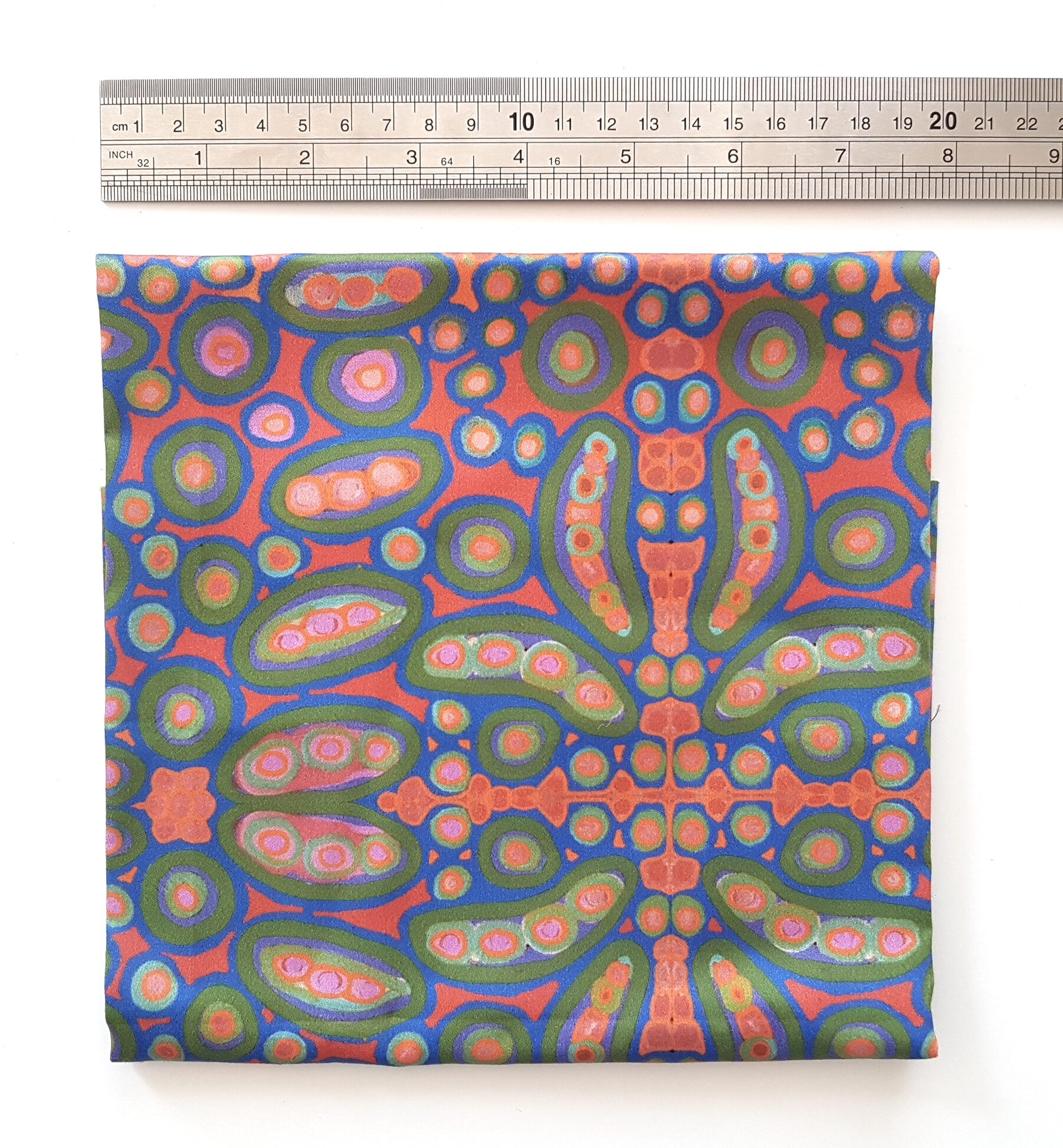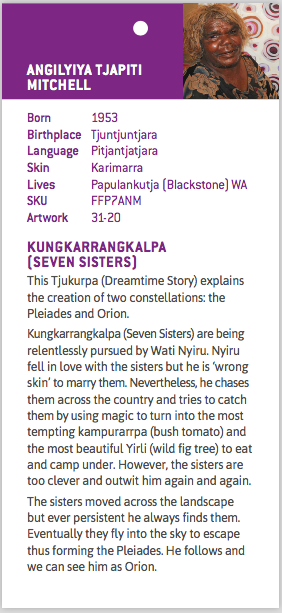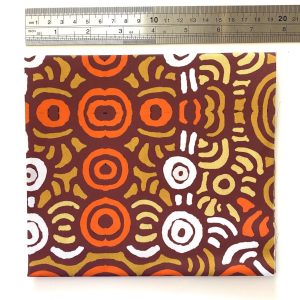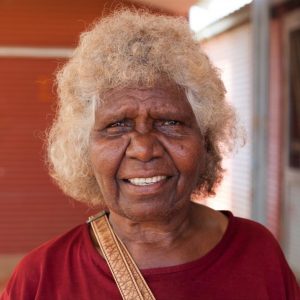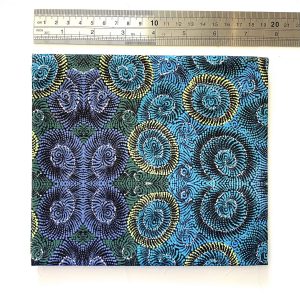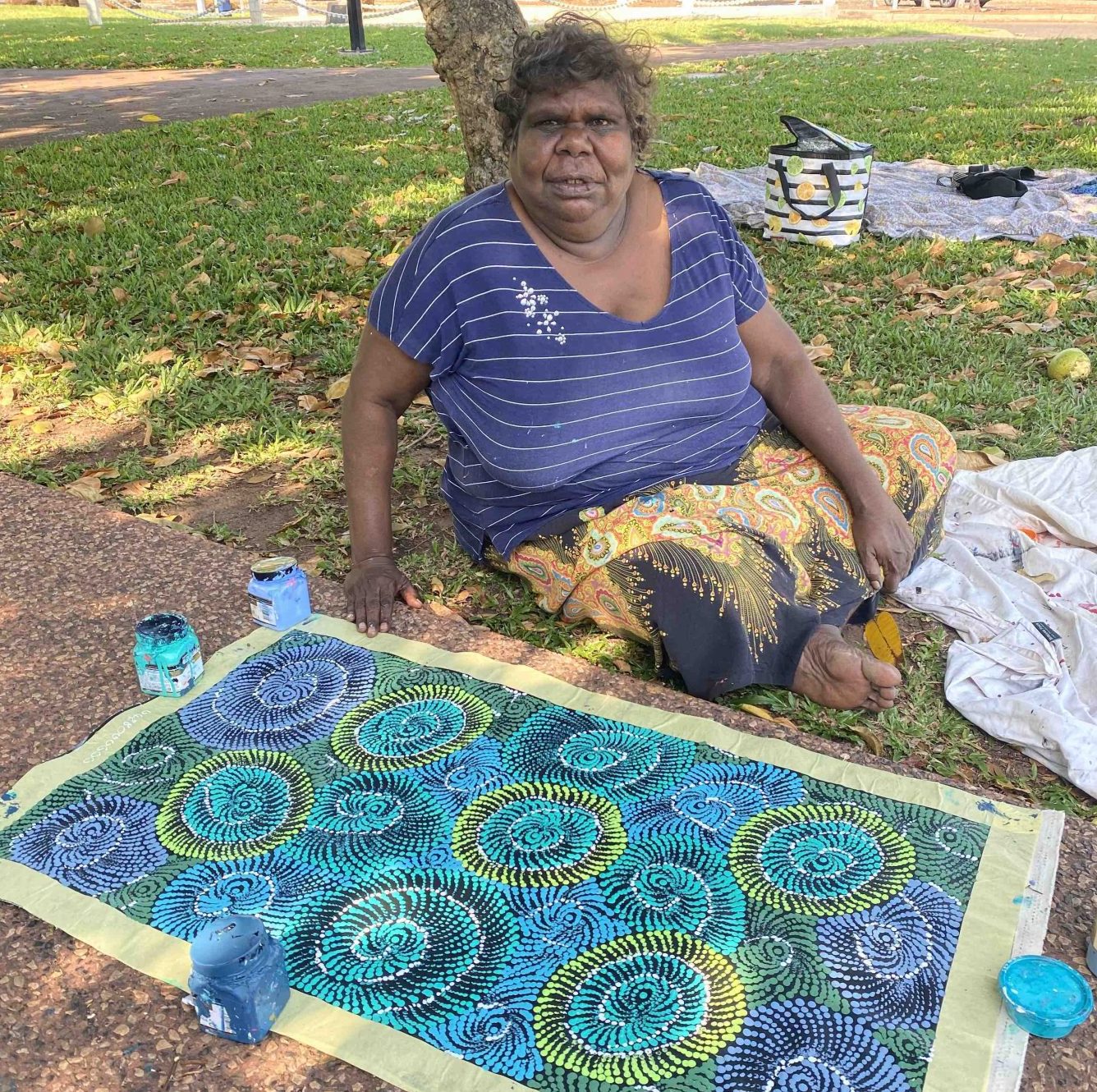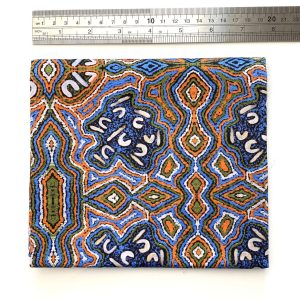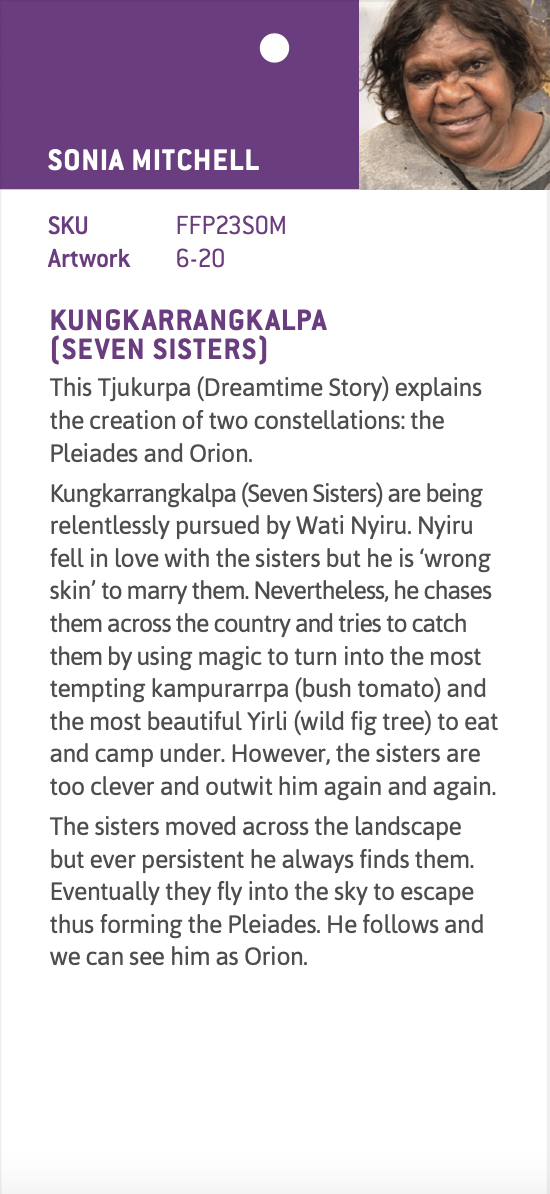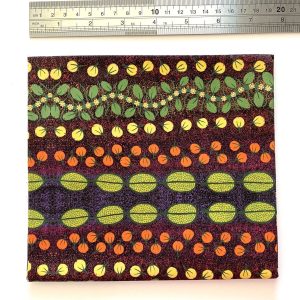Description
- Composition: Classic Cotton – organic (more info below)
- Dimensions: 50 x 70 cm (19.7 x 27.5 inches)
- Weight: 140 gsm
- The artist is paid royalties for every metre printed
- Produced by Flying Fox Fabrics under license in collaboration with Papulankutja Artists
- Tag with story details attached (see photo)
Title: Kungkarrangkalpa
This Tjukurpa (Dreamtime Story) explains the creation of two constellations: the Pleiades and Orion.
Kungkarrangkalpa (Seven Sisters) are being relentlessly pursued by Wati Nyiru. Nyiru fell in love with the sisters but he is ‘wrong skin’ to marry them. Nevertheless, he chases them across the country and tries to catch them by using magic to turn into the most tempting kampurarrpa (bush tomato) and the most beautiful Yirli (wild fig tree) to eat and camp under. However, the sisters are too clever and outwit him again and again.
The sisters moved across the landscape but ever persistent he always finds them. Eventually they fly into the sky to escape thus forming the Pleiades. He follows and we can see him as Orion.
About the artist:
Angilyiya (also spelt as Angilya, Angiliya) was born near to Blackstone Ranges in Emu Country near Kunmarnarra Bore. There are important men’s Dreamings in this country which is a traditional law area. She is a strong Law woman with wonderful bush skills, holding a wealth of traditional knowledge and capacity to live on this land. Recently Angilyiya was appointed the caretaker for an important woman’s dreaming, linked to the Seven Sisters story in country a little south of Blackstone.
Angilyiya’s father had four wives and her mother was the third. As a result she has a number of siblings and she has the same father as Anawari Inpiti Mitchell. Her father was a ‘jealous man’ and kept his wives confined at a camp in the spinifex, at a distance from others. He would sweep the ground around the camp to ensure they did not venture out.
Angiliyiya had five children, one of whom has passed away..
She created her first painting in 1994 and has been consistently active as an artist since and has also made limited edition prints. She is energetic and takes an interest in many things and has turned her hand to wood carving to make punu (small wood sculptures) and wira (bowls) and making bush medicines.
She is very active in teaching and mentoring in language, culture and heritage. She is frequently called upon by the local Land Management team to come on trips and ‘talk for rockholes’ because of her knowledge of country/sites and ability to teach about ethnobotany and share Tjukurrpa (ancestral creation) stories.
She has also been a keen member of NPY Women’s Council and of Tjanpi Desert Weavers (TDW) making sculptural objects such as baskets and animal figures out of natural fibre tjarnp (local grasses), raffia and wool.
Angiliyiya has been commissioned to contribute to major projects including creating a grass Toyota that won first prize in the 2005 Na onal Aboriginal and Torres Strait Islander Art (NATSIA) Awards. It was a collective work created by 18 women from Papulankutja/Blackstone (WA) and was acquired by the Museum and Art Gallery NT as part of their permanent collection. This was the first me a contemporary fibre art piece took the major prize in the history of this prestigious award.
Papulankutja Artists is a community-based, not-for-profit Aboriginal Corporation governed by a committee of elected members.
It evolved out of the Women’s Centre where painting had been encouraged as an activity for both men and women since the mid 1980s. With the Aboriginal art market taking off it became necessary to establish a legal framework to protect the artists and their entitlements. Papulankutja Artists was born in 2003 and a year later registered as an Aboriginal Corporation with the members governing the art centre. After five year struggling to find a home Papulankutja Artists moved into a purpose built art centre in 2009. The art centre also works with artists in Mantamaru (Jameson), a community 75kms to the west.
The fabric: Classic Cotton is made from organic yarn and woven in a satin finish. The fabric has a smooth surface with a sheen across it and a bright white point making it an excellent fabric for printing. Classic Cotton is a versatile fabric that produces a soft hand feel and gentle drape. Perfect for all types of clothing, accessories and selected soft furnishings.
Printed by: Next State Print in Melbourne
Fabric care instructions:
Gentle cold/ warm hand wash. Do not bleach, warm rinse well, do not tumble dry, cool iron only, dry cleanable (P).

